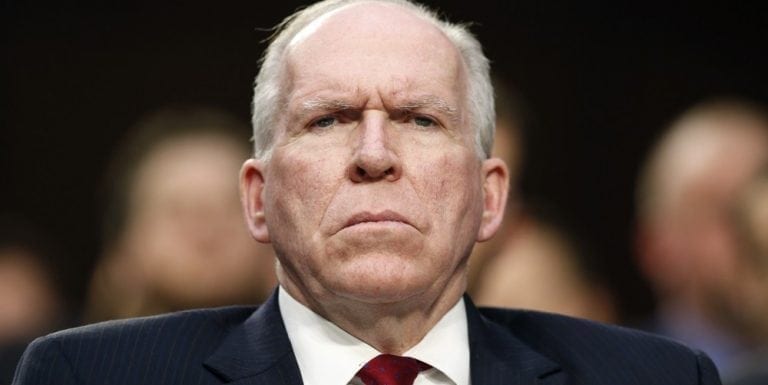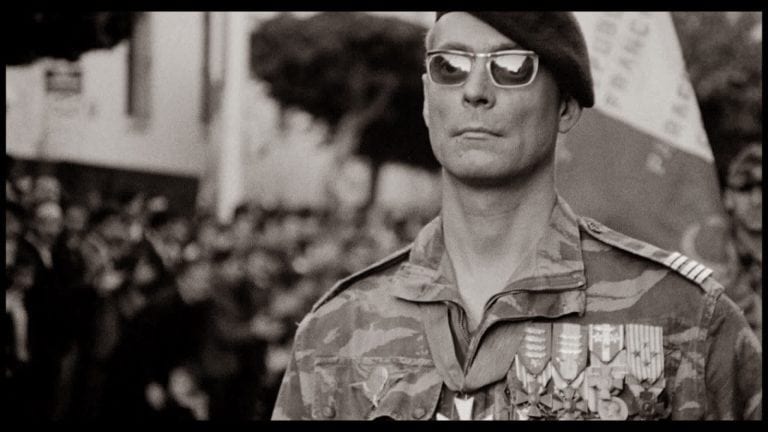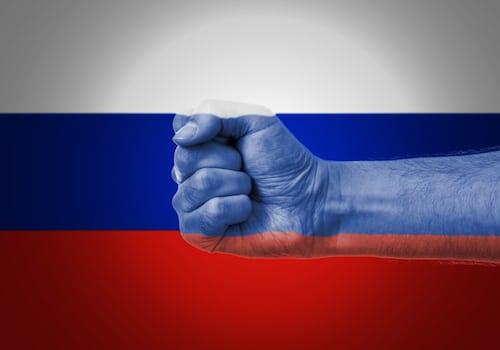Corporate Media: the Enemy of the People
by PAUL STREET
Without a doubt, the author provides here one of the most comprehensive and formidable indictments of capitalist media in essay form to be found anywhere on the left press.
Here below is an essay I first published (on the venerable radical Website ZNet) in the late summer of 2015. It is a longer version of a talk I gave (with the help of a translator) in Havana, Cuba in April that same year. It was written from a Marxist and international socialist and anti-imperialist perspective and not at all from a Trumpian, white-nationalist standpoint.
It struck me that it might be worth re-publishing this essay (which was written as Obama’s final term was winding down and many of us expected him to be succeeded by the “lying neoliberal warmonger”Hillary Clinton and did not yet take seriously the specter of pre-fascistic Trump presidency) in the light of recent bizarre developments. “Liberal” CNN, MSNBC, The New York Times, the Washington Post and much of the rest of the corporate news establishment are standing up against Trump in defense of blood-soaked U.S.-imperial spy-masters, surveillance chiefs, liars, and assassins like former CIA Director John Brennan and former Director of National Intelligence James Clapper – and in defense of the supposedly noble imperial project that these and other current and former top U.S. intelligence and military operatives on Herr Trump’s security clearance “Enemies List” have long “served” in pursuit of what CNN and MSNBC talking heads absurdly call (no joke) “speaking truth to power.”
Of course, nobody should confuse my position (supported with references to brilliant left media and propaganda critics like Alex Carey, Ed Herman, Noam Chomsky, Michael Parenti, Robert McChesney, and Stephen Macek) in 2015 (no different in any fundamental way from my position today) with that of white-nationalist thugs like Trump and Sean Hannity. The authoritarian wannabe <> Donald Trump is raging and acting against the likes of Brennan and Clapper not (of course) because he sees them as agents of imperialism but because they have criticized him as a stupid and ineffective, dysfunctional nominal head of the American Empire.
No, an enemy (in this case Trump) of some of our enemies (Brennan, Clapper, and much of the rest of the U.S-imperial establishment) is not necessarily our friend or ally. But that hardly means that everything this (truly hideous) enemy (Trump) says is false (another example of Trump saying something truthful is his recurrent statement to the effect that the world would be safer place if the two nuclear superpowers Russia and the U.S. de-escalated the New Cold War) – or that we on the Left need to reflexively and absurdly jump to the defense of imperial criminals at the instigation of that (well, yes) “enemy of the people” the U.S. corporate and so-called mainstream war, news, and entertainment media. The essay follows. — PS
“Homeland” Distortion
[dropcap]C[/dropcap]onsistent with its possession as a leading and money-making asset of the nation’s wealthy elite, the United States corporate and commercial mass media is a bastion of power-serving propaganda and deadening twaddle designed to keep the U.S. citizenry subordinated to capital and the imperial U.S. state. It regularly portrays the United States as a great model of democracy and equality. It sells a false image of the U.S. as a society where the rich enjoy opulence because of hard and honest work and where the poor are poor because of their laziness and irresponsibility. The nightly television news broadcasts and television police and law and order dramas are obsessed with violent crime in the nation’s Black ghettoes and Latino barrios, but they never talk about the extreme poverty, the absence of opportunity imposed on those neighborhoods by the interrelated forces of institutional racism, capital flight, mass structural unemployment, under-funded schools, and mass incarceration. The nightly television weather reports tells U.S. citizens of ever new record high temperatures and related forms of extreme weather but never relate these remarkable meteorological developments to anthropogenic climate change.
"The first and most important explanation for this harsh reality is concentrated private ownership – the fundamental fact that media is owned primarily by giant corporations representing wealthy interests who are deeply invested in U.S. capitalism and Empire..."
The dominant corporate U.S. media routinely exaggerates the degree of difference and choice between the candidates run by the nation’s two corporate-dominated political organizations, the Democrats and the Republicans. It never notes that the two reigning parties agree about far more than they differ on, particularly when it comes to fundamental and related matters of business class power and American Empire. It shows U.S. protestors engaged in angry confrontations with police and highlights isolated examples of protestor violence but it downplays peaceful protest and never pays serious attention to the important societal and policy issues that have sparked protest or to the demands and recommendations advanced by protest movements.
As the prolific U.S. Marxist commentator Michael Parenti once remarked, US “Newscasters who want to keep their careers afloat learn the fine art of evasion…with great skill they skirt around the most important parts of a story. With much finesse, they say a lot about very little, serving up heaps of junk news filled with so many empty calories and so few nutrients. Thus do they avoid offending those who wield politico-economic power while giving every appearance of judicious moderation and balance. It is enough to take your breath away.” [1]
Selling Empire
U.S. newscasters and their print media counterparts routinely parrot and disseminate the false foreign policy claims of the nation’s imperial elite. Earlier this year, U.S. news broadcasters dutiful relayed to U.S. citizens the Obama administration’s preposterous assertion that social-democratic Venezuela is a repressive, corrupt, and authoritarian danger to its own people and the U.S. No leading national U.S. news outlet dared to note the special absurdity of this charge in the wake of Obama and other top U.S. officials’ visit to Riyadh to guarantee U.S. support for the new king of Saudi Arabia, the absolute ruler of a leading U.S. client state that happens to be the most brutally oppressive and reactionary government on Earth.
In U.S. “mainstream” media, Washington’s aims are always benevolent and democratic. Its clients and allies are progressive, its enemies are nefarious, and its victims are invisible and incidental. The U.S. can occasionally make “mistakes” and “strategic blunders” on the global stage, but its foreign policies are never immoral, criminal, or imperialist in nature as far as that media is concerned. This is consistent with the doctrine of “American Exceptionalism,” according to which the U.S., alone among great powers in history, seeks no selfish or imperial gain abroad. It is consistent also with “mainstream” U.S. media’s heavy reliance on “official government sources” (the White House, the Defense Department, and the State Department) and leading business public relations and press offices for basic information on current events.
As the leading Left U.S. intellectuals Noam Chomsky and Edward Herman showed in their classic text Manufacturing Consent: The Political Economy of the Mass Media (1988), Orwellian double standards are rife in the dominant U.S. media’s coverage and interpretation of global affairs. Elections won in other countries by politicians that Washington approves because those politicians can be counted on to serve the interests of U.S. corporations and the military are portrayed in U.S. media as good and clean contests. But when elections put in power people who can’t be counted on to serve “U.S. interests,” (Hugo Chavez and Nicolas Maduro for example), then U.S. corporate media portrays the contests as “rigged” and “corrupt.” When Americans or people allied with Washington are killed or injured abroad, they are “worthy victims” and receive great attention and sympathy in that media. People killed, maimed, displaced and otherwise harmed by the U.S. and U.S. clients and allies are anonymous and “unworthy victims” whose experience elicits little mention or concern.[2]
U.S. citizens regularly see images of people who are angry at the U.S. around the world. The dominant mass media never gives them any serious discussion of the US policies and actions that create that anger. Millions of Americans are left to ask in childlike ignorance “Why do they hate us? What have we done?”
In February of 2015, an extraordinary event occurred in U.S. news media – the firing of a leading national news broadcaster, Brian Williams of NBC News. Williams lost his position because of some lies he told in connection with the U.S. invasion of Iraq. A naïve outsider might think that Williams was fired because he repeated the George W. Bush administration’s transparent fabrications about Saddam Hussein’s weapons of mass destruction and Saddam’s supposed connection to 9/11. Sadly but predictably enough, that wasn’t his problem. Williams lost his job because he falsely boasted that he had ridden on a helicopter that was forced down by grenade fire during the initial U.S. invasion. If transmitting Washington’s lies about Iraq were something to be fired about, then U.S. corporate media authorities would have to get rid of pretty much of all their top broadcasters.
More than Entertainment
[dropcap]T[/dropcap]he U.S. corporate media’s propagandistic service to the nation’s reigning and interrelated structures of Empire and inequality is hardly limited to its news and public affairs wings. Equally if not more significant in that regard is that media’s vast “entertainment” sector, which is loaded with political and ideological content but was completely ignored in Herman and Chomsky’s groundbreaking Manufacturing Consent. [3] One example is the Hollywood movie “Zero Dark Thirty,” a 2012 “action thriller” that dramatized the United States’ search for Osama bin-Laden after the September 11, 2001 jetliner attacks. The film received critical acclaim and was a box office-smash. It was also a masterpiece of pro-military, pro-CIA propaganda, skillfully portraying U.S. torture practices “as a dirty, ugly business that is necessary to protect America” (Glenn Greenwald[4]) and deleting the moral debate that erupted over the CIA’s “enhanced interrogation techniques.” Under the guise of a neutral, documentary-like façade, Zero Dark Thirty normalized and endorsed torture in ways that were all the more effective because of its understated, detached, and “objective” veneer. The film also marked a distressing new frontier in U.S. military-“embedded” filmmaking whereby the movie-makers receive technical and logistical support from the Pentagon in return for producing elaborate public relations on the military’s behalf.
The 2014-15 Hollywood blockbuster American Sniper is another example. The film’s audiences is supposed to marvel at the supposedly noble feats, sacrifice, and heroism of Chris Kyle, a rugged, militantly patriotic, and Christian-fundamentalist Navy SEALS sniper who participated in the U.S. invasion of Iraq to fight “evil” and to avenge the al Qaeda jetliner attacks of September 11, 2001. Kyle killed 160 Iraqis over four tours of “duty” in “Operational Iraqi Freedom.” Viewers are never told that the Iraqi government had nothing to do with the 9/11 attacks or al Qaeda or that the U.S. invasion was one of the most egregiously criminal and brazenly imperial and mass-murderous acts in the history of international violence. Like Zero Dark Thirty’s apologists, American Sniper’s defenders claim that the film takes a neutral perspective of “pure storytelling,” with no ideological bias. In reality, the movie is filled with racist and imperial distortions, functioning as flat-out war propaganda.[5]
These are just two among many examples that could be cited of U.S. “entertainment” media’s regular service to the American Empire. Hollywood and other parts of the nation’s vast corporate entertainment complex plays the same power-serving role in relation to domestic (“homeland”) American inequality and oppression structures of class and race. [6]
Manufacturing Idiocy
[dropcap]S[/dropcap]een broadly in its many-sided and multiply delivered reality, U.S. corporate media’s dark, power-serving mission actually goes further than the manufacture of consent. A deeper goal is the manufacture of mass idiocy, with “idiocy” understood in the original Greek and Athenian sense not of stupidity but of childish selfishness and willful indifference to public affairs and concerns. (An “idiot” in Athenian democracy was characterized by self-centeredness and concerned almost exclusively with private instead of public affairs.). As the U.S. Latin Americanist Cathy Schneider noted, the U.S.-backed military coup and dictatorship headed by Augusto Pinochet “transformed Chile, both culturally and politically, from a country of active participatory grassroots communities, to a land of disconnected, apolitical individuals”[7] – into a nation of “idiots” understood in this classic Athenian sense.
In the U.S., where violence is not as readily available to elites as in 1970s Latin America, corporate America seeks the same terrible outcome through its ideological institutions, including above all its mass media. In U.S. movies, television sit-coms, television dramas, television reality-shows, commercials, state Lottery advertisements, and video games, the ideal-type U.S. citizen is an idiot in this classic sense: a person who cares about little more than his or her own well-being, consumption, and status. This noble American idiot is blissfully indifferent to the terrible prices paid by others for the maintenance of reigning and interrelated oppressions structures at home and abroad.
A pervasive theme in this media culture is the notion that people at the bottom of the nation’s steep and interrelated socioeconomic and racial pyramids are the “personally irresponsible” and culturally flawed makers of their own fate. The mass U.S. media’s version of Athenian idiocy “can imagine,” in the words of the prolific Left U.S. cultural theorist Henry Giroux “public issues only as private concerns.” It works to “erase the social from the language of public life so as to reduce” questions of racial and socioeconomic disparity to “private issues of …individual character and cultural depravity. Consistent with “the central neoliberal tenet that all problems are private rather than social in nature,” it portrays the only barriers to equality and meaningful democratic participation as “a lack of principled self-help and moral responsibility” and bad personal choices by the oppressed. Government efforts to meaningfully address and ameliorate (not to mention abolish) societal disparities of race, class, gender, ethnicity, nationality and the like are portrayed as futile, counterproductive, naïve, and dangerous.[8]
To be sure, a narrow and reactionary sort of public concern and engagement does appear and take on a favorable light in this corporate media culture. It takes the form of a cruel, often even sadistically violent response to unworthy and Evil Others who are perceived as failing to obey prevalent national and neoliberal cultural codes. Like the U.S. ruling class that owns it, the purportedly anti-government corporate media isn’t really opposed to government as such. It’s opposed to what the French sociologist Pierre Bourdieu called “the left hand of the state” – the parts of the public sector that serve the social and democratic needs of the non-affluent majority. It celebrates and otherwise advances the “right hand of the state”[9]: the portions of government that serve the opulent minority, dole out punishment for the poor, and attacks those perceived as nefariously resisting the corporate and imperial order at home and abroad. Police officers, prosecutors, military personnel, and other government authorities who represent the “right hand of the state” are heroes and role models in this media. Public defenders, other defense attorneys, civil libertarians, racial justice activists, union leaders, antiwar protesters and the like are presented at best as naïve and irritating “do-gooders” and at worst as coddlers and even agents of evil.
The generation of mass idiocy in the more commonly understood sense of sheer stupidity is also a central part of U.S. “mainstream” media’s mission. Nowhere is this more clearly evident than in the constant barrage of rapid-fire advertisements that floods U.S. corporate media. As the American cultural critic Neil Postman noted thirty years ago, the modern U.S. television commercial is the antithesis of the rational economic consideration that early Western champions of the profits system claimed to be the enlightened essence of capitalism. “Its principal theorists, even its most prominent practitioners,” Postman noted, “believed capitalism to be based on the idea that both buyer and seller are sufficiently mature, well-informed, and reasonable to engage in transactions of mutual self-interest.” Commercials make “hash” out of this idea. They are dedicated to persuading consumers with wholly irrational claims. They rely not on the reasoned presentation of evidence and logical argument but on suggestive emotionalism, infantilizing manipulation, and evocative, rapid-fire imagery.[10]
The same techniques poison U.S. electoral politics. Investment in deceptive and manipulative campaign commercials commonly determines success or failure in mass-marketed election contests between business-beholden candidates that are sold to the audience/electorate like brands of toothpaste and deodorant. Fittingly enough, the stupendous cost of these political advertisements is a major factor driving U.S. campaign expenses so high (the 2016 U.S. presidential election will cost at least $5 billion) as to make candidates ever more dependent on big money corporate and Wall Street donors.
Along the way, mass cognitive competence is assaulted by the numbing, high-speed ubiquity of U.S. television and radio advertisements. These commercials assault citizens’ capacity for sustained mental focus and rational deliberation nearly sixteen minutes of every hour on cable television, with 44 percent of the individual ads now running for just 15 seconds. This is a factor in the United States’ long-bemoaned epidemic of “Attention Deficit Disorder.”
Seventy years ago, the brilliant Dutch left Marxist Anton Pannekoek offered some chilling reflections on the corporate print and broadcast media’s destructive impact on mass cognitive and related social resistance capacities in the United States after World War II:
“The press is of course entirely in hands of big capital [and it]…dominates the spiritual life of the American people. The most important thing is not even the hiding of all truth about the reign of big finance. Its aim still more is the education to thoughtlessness. All attention is directed to coarse sensations, everything is avoided that could arouse thinking. Papers are not meant to be read – the small print is already a hindrance – but in a rapid survey of the fat headlines to inform the public on unimportant news items, on family triflings of the rich, on sexual scandals, on crimes of the underworld, on boxing matches. The aim of the capitalist press all over the world, the diverting of the attention of the masses from the reality of social development, nowhere succeed with such thoroughness as in America.”
“Still more than by the papers the masses are influenced by broadcasting and film. These products of most perfect science, destined at one time to the finest educational instruments of mankind, now in the hands of capitalism have been turned into the strongest means to uphold its rule by stupefying the mind. Because after nerve-straining fatigue the movie offers relaxation and distraction by means of simple visual impressions that make no demand on the intellect, the masses get used to accepting thoughtlessly all its cunning and shrewd propaganda. It reflects the ugliest sides of middle-class society. It turns all attention either to sexual life, in this society – by the absence of community feelings and fight for freedom – the only source of strong passions, or to brute violence; masses educated to rough violence instead of to social knowledge are not dangerous to capitalism…”[11]
Pannekoek clearly saw an ideological dimension (beyond just diversion and stupefaction) in U.S. mass media’s “education to thoughtlessness” through movies as well as print sensationalism. He would certainly be impressed and perhaps depressed by the remarkably numerous, potent, and many-sided means of mass distraction and indoctrination that are available to the U.S. and global capitalist media in the present digital and Internet era.
The “entertainment” wing of its vast corporate media complex is critical to the considerable “soft” ideological “power” the U.S. exercises around the world even as its economic hegemony wanes in an ever more multipolar global system (and as its “hard” military reveals significant limits within and beyond the Middle East). Relatively few people beneath the global capitalist elite consume U.S. news and public affairs media beyond the U.S., but “American” (U.S.) movies, television shows, video games, communication devices, and advertising culture are ubiquitous across the planet.
Explaining “Mainstream” Media Corporate Ownership
[dropcap]T[/dropcap]here’s nothing surprising about the fact that the United States’ supposedly “free” and “independent” media functions as a means of mass indoctrination for the nation’s economic and imperial elite. The first and most important explanation for this harsh reality is concentrated private ownership – the fundamental fact that media is owned primarily by giant corporations representing wealthy interests who are deeply invested in U.S. capitalism and Empire. Visitors to the U.S. should not be fooled by the large number and types of channels and stations on a typical U.S. car radio or television set or by the large number and types of magazines and books on display at a typical Barnes & Noble bookstore. Currently in the U.S., just six massive and global corporations – Comcast, Viacom, Time Warner, CBS, The News Corporation and Disney – together control more than 90 percent of the nation’s print and electronic media, including cable television, airwaves television, radio, newspapers, movies, video games, book publishing, comic books, and more. Three decades ago, 50 corporations controlled the same amount of U.S. media.
Each of the reigning six companies is a giant and diversified multi-media conglomerate with investments beyond media, including “defense” (the military). Asking reporters and commentators at one of those giant corporations to tell the unvarnished truth about what’s happening in the U.S. and the world is like asking the company magazine published by the United Fruit Company to the tell the truth about working conditions in its Caribbean and Central American plantations in the 1950s. It’s like asking the General Motors company newspaper to tell the truth about wages and working conditions in GM’s auto assembly plants around the world.
As the nation’s media becomes concentrated into fewer corporate hands, media personnel become ever more insecure in their jobs because they have fewer firms to whom to sell their skills. That makes them even less willing than they might have been before to go outside official sources, to question the official line, and to tell the truth about current events and the context in which they occur.
Advertisers
A second explanation is the power of advertisers. U.S. media managers are naturally reluctant to publish or broadcast material that might offend the large corporations that pay for broadcasting by purchasing advertisements. As Chomsky has noted in a recent interview, large corporations are not only the major producers of the United States’ mass and commercial media. They are also that media’s top market, something that deepens the captivity of nation’s supposedly democratic and independent media to big capital:
“The reliance of a journal on advertisers shapes and controls and substantially determines what is presented to the public…the very idea of advertiser reliance radically distorts the concept of free media. If you think about what the commercial media are, no matter what, they are businesses. And a business produces something for a market. The producers in this case, almost without exception, are major corporations. The market is other businesses – advertisers. The product that is presented to the market is readers (or viewers), so these are basically major corporations providing audiences to other businesses, and that significantly shapes the nature of the institution.”[12]
At the same time, both U.S. corporate media managers and the advertisers who supply revenue for their salaries are hesitant to produce content that might alienate the affluent people who count for an ever rising share of consumer purchases in the U.S. It is naturally those with the most purchasing power who are naturally most targeted by advertisers.
Government Policy
[dropcap]A[/dropcap] third great factor is U.S. government media policy and regulation on behalf of oligopolistic hyper-concentration. The U.S. corporate media is hardly a “natural” outcome of a “free market.” It’s the result of government protections and subsidies that grant enormous “competitive” advantages to the biggest and most politically/plutocratically influential media firms. Under the terms of the 1934 Communications Act and the 1996 Telecommunications Act, commercial, for-profit broadcasters have almost completely free rein over the nation’s airwaves and cable lines. There is no substantive segment of the broadcast spectrum set aside for truly public interest and genuinely democratic, popular not-for profit media and the official “public” broadcasting networks are thoroughly captive to corporate interests and to right-wing politicians who take giant campaign contributions from corporate interests. Much of the 1996 bill was written by lobbyists working for the nations’ leading media firms. [13]
A different form of state policy deserves mention. Under the Obama administration, we have seen the most aggressive pursuit and prosecution in recent memory of U.S. journalists who step outside the narrow parameters of pro-U.S. coverage and commentary – and of the whistleblowers who provide them with leaked information. That is why Edward Snowden lives in Russia, Glenn Greenwald lives in Brazil, Chelsea Manning is serving life in a U.S. military prison, and Julian Assange is trapped in the Ecuadorian Embassy in London. A leading New York Times reporter and author, James Risen, has been threatened with imprisonment by the White House for years because of his refusal to divulge sources.
Treetops v. Grassroots Audiences

FBI and Intel chiefs—Mueller, Clapper and Brennan—a veritably malignant assembly. Nothing good for the people here or elsewhere.
[dropcap]I[/dropcap]n this writer’s experience, the critical Left analysis of the U.S. “mainstream” media as a tool for “manufacturing consent” and idiocy developed above meets four objections from defenders of the U.S. media system, A first objection notes that the New York Times, the Washington Post, the Financial Times (FT), the Wall Street Journal (WSJ) and other major U.S. corporate media outlets produce a significant amount of, informative, high-quality and often candid reporting and commentary that Left thinkers and activists commonly cite to support their cases for radical and democratic change. Left U.S. media critics like Chomsky and Herman are said to be hypocrites because they obviously find much that is of use as Left thinkers in the very media that they criticize for distorting reality in accord with capitalist and imperial dictates.
The observation that Leftists commonly use and cite information from the corporate media they harshly criticize is correct but it is easy to account for the apparent anomaly within the critical Left framework by noting that that media crafts two very different versions of U.S. policy, politics, society, “life,” and current events for two different audiences. Following the work of the brilliant Australian propaganda critic Alex Carey, we can call the first audience the “grassroots.”[14] It comprises the general mass of working and lower-class citizens. As far as the business elites who own and manage the U.S. mass media and the corporations that pay for that media with advertising purchases are concerned, this “rabble” cannot be trusted with serious, candid, and forthright information. Its essential role in society is to keep quiet, work hard, be entertained (in richly propagandistic and ideological ways, we should remember), buy things, and generally do what they’re told. They are to leave key societal decisions to those that the leading 20th century U.S. public intellectual and media-as-propaganda enthusiast Walter Lippman called “the responsible men.” That “intelligent,” benevolent, “expert,” and “responsible” elite (responsible, indeed, for such glorious accomplishments as the Great Depression, the Vietnam War, the invasion of Iraq, the Great Recession, global warming, and the rise of the Islamic State) needed, in Lippman’s view, to be protected from what he called “the trampling and roar of the bewildered herd.”[15] The deluded mob, the sub-citizenry, the dangerous working class majority is not the audience for elite organs like the Times, the Post, and the Journal.
The second target group comprises the relevant political class of U.S. citizens from at most the upper fifth of society. This is who reads the Times, the Post, WSJ, and FT, for the most part. Call this audience (again following Carey) the “treetops”: the “people who matter” and who deserve and can be trusted with something more closely approximating the real story because their minds have been properly disciplined and flattered by superior salaries, significant on-the-job labor autonomy, and “advanced” and specialized educational and professional certification. This elite includes such heavily indoctrinated persons as corporate managers, lawyers, public administrators, and (most) tenured university professors. Since these elites carry out key top-down societal tasks of supervision, discipline, training, demoralization, co-optation, and indoctrination – all essential to the rule of the real economic elite and the imperial system – they cannot be too thoroughly misled about current events and policy without deleterious consequences for the smooth functioning of the dominant social and political order. They require adequate information and must not be overly influenced by the brutal and foolish propaganda generated for the “bewildered herd.” At the same time, information and commentary for the relevant and respectable business and political classes and their “coordinator class” servants and allies often contains a measure of reasoned and sincere intra-elite political and policy debate – debate that is always careful not to stray beyond narrow U.S. ideological parameters. That is why a radical Left U.S. thinker and activist can find much that is of use in U.S. “treetops” media. Such a thinker or activist would, indeed, be foolish not to consult these sources.
“P”BS and N”P”R
A second objection to the Left critique of U.S. “mainstream” media claims that the U.S. public enjoys a meaningful alternative to the corporate media in the form of the nation’s Public Broadcasting Service (television) and National Public Radio (NPR). This claim should not be taken seriously. Thanks to U.S. “public” media’s pathetically weak governmental funding, its heavy reliance on corporate sponsors, and its constant harassment by right wing critics inside and beyond the U.S. Congress, N”P”R and “P”BS are extremely reluctant to question dominant U.S. ideologies and power structures.
The tepid, power-serving conservatism of U.S. “public” broadcasting is by longstanding political and policy design. The federal government allowed the formation of the “public” networks only on the condition that they pose no competitive market or ideological challenge to private commercial media, the profits system, and U.S. global foreign policy. “P”BS and N”P”R are “public” in a very limited sense. They not function for the public over and against corporate, financial, and imperial power to any significant degree.
“The Internet Will Save Us”
[dropcap]A[/dropcap] third objection claims that the rise of the Internet creates a “Wild West” environment in which the power of corporate media is eviscerated and citizens can find and even produce all the “alternative media” they require. This claim is misleading but it should not be reflexively or completely dismissed. In the U.S. as elsewhere, those with access to the Internet and the time and energy to use it meaningfully can find a remarkable breadth and depth of information and trenchant Left analysis at various online sites. The Internet also broadens U.S. citizens and activists’ access to media networks beyond the U.S. – to elite sources that are much less beholden of course to U.S. propaganda and ideology. At the same time, the Internet and digital telephony networks have at times shown themselves to be effective grassroots organizing tools for progressive U.S. activists.
Still, the democratic and progressive impact of the Internet in the U.S. is easily exaggerated. Left and other progressive online outlets lack anything close to the financial, technical, and organizational and human resources of the corporate news media, which has its own sophisticated Internet. There is nothing in Left other citizen online outlets that can begin to remotely challenge the “soft” ideological and propagandistic power of corporate “entertainment” media. The Internet’s technical infrastructure is increasingly dominated by an “ISP cartel” led by a small number of giant corporations. As the leading left U.S. media analyst Robert McChesney notes:
“By 2014, there are only a half-dozen or so major players that dominate provision of broadband Internet access and wireless Internet access. Three of them – Verizon, AT&T, and Comcast – dominate the field of telephony and Internet access, and have set up what is in effect a cartel. They no longer compete with each other in any meaningful sense. As a result, Americans pay far more for cellphone and broadband Internet access than most other advanced nations and get much lousier service…These are not ‘free market’ companies in any sense of the term. Their business model, going back to pre-Internet days, has always been capturing government monopoly licenses for telephone and cable TV services. Their ‘comparative advantage’ has never been customer service; it has been world-class lobbying.’ [16]
Along the way, the notion of a great “democratizing,” Wild West” and “free market” Internet has proved politically useful for the corporate media giants. The regularly trumpet the great Internet myth to claim that the U.S. public and regulators don’t need to worry about corporate media power and to justify their demands for more government subsidy and protection. At the same time, finally, we know from the revelations of Edward Snowden, Glenn Greenwald and others that the nation’s leading digital and Internet-based e-mail (Google and Yahoo), telephony (e.g. Verizon), and “social network” (Facebook above all) corporations have collaborated with the National Security Agency and with the nation’s local, state, and federal police in the surveillance of U.S. citizens’ and activists’ private communications.[17]
Solutions
The fourth objection accuses Left media critics of being overly negative, “carping” critics who offer no serious alternatives to the nation’s current corporate-owned corporate-managed commercial and for-profit media system. This is a transparently false and mean-spirited charge. Left U.S. media criticism is strongly linked to a smart and impressive U.S. media reform movement that advances numerous and interrelated proposals for the creation of a genuinely public and democratically run non-commercial and nonprofit U.S. media system. Some of the demand and proposals of this movement include public ownership and operation of the Internet as a public utility; the break-up of the leading media oligopolies; full public funding of public broadcasting; limits on advertising in commercial media; the abolition of political advertisements; the expansion of airwave and broadband access for alternative media outlets; publicly-funded nonprofit and non-commercial print journalism; the abolition of government and corporate surveillance, monitoring, and commercial data-mining of private communication and “social networks.”[18] With regard to the media as with numerous other areas, we should recall Chomsky’s sardonic response to the standard conservative claim that the Left offers criticisms but no solutions: “There is an accurate translation for that charge: ‘they present solutions and I don’t like them.’”[19]
A False Paradox
[dropcap]T[/dropcap]he propagandistic and power-serving mission and nature of dominant U.S, corporate mass media might seem ironic and even paradoxical in light of the United States’ strong free speech and democratic traditions. In fact, as Carey and Chomsky have noted, the former makes perfect sense in light of the latter. In nations where popular expression and dissent is routinely crushed with violent repression, elites have little incentive to shape popular perceptions in accord with elite interests. The population is controlled primarily through physical coercion. In societies where it is not generally considered legitimate to put down popular expression with the iron heel of armed force and where dissenting opinion is granted a significant measure of freedom of expression, elites are heavily and dangerously incentivized to seek to manufacture mass popular consent and idiocy. The danger is deepened by the United States’ status as the pioneer in the development of mass consumer capitalism, advertising, film, and television. Thanks to that history, corporate America has long stood in the global vanguard when it comes to developing the technologies, methods, art, and science of mass persuasion and thought control.[20]
It is appropriate to place quotation marks around the phrase “mainstream media” when writing about dominant U.S. corporate media. During the Cold War era, U.S. officials and media never referred to the Soviet Union’s state television and radio or its main state newspapers as “mainstream Russian media.” American authorities referred to these Russian media outlets as “Soviet state media” and treated that media as means for the dissemination of Soviet “propaganda” and ideology. There is no reason to consider the United States’ corporate and commercial media as any more “mainstream” than the leading Soviet media organs were back in their day. It is just as dedicated as the onetime Soviet state media to advancing the doctrinal perspectives of its host nation’s reigning elite—and far more effective.
Its success is easily exaggerated, however. To everyday American's credit, corporate media has never been fully successful in stamping out popular resistance and winning over the hearts and minds of the U.S. populace. A recent Pew Research poll showed that U.S. “millennials” (young adults 18-29 years old) have a more favorable response to the word “socialism” than to “capitalism” – a remarkable finding on the limits of corporate media and other forms of elite ideological power in the U.S. The immigrant worker uprising of May 2006, the Chicago Republic Door and Window plant occupation of 2008, the University of California student uprisings of 2009 and 2010, the Wisconsin public worker rebellion in early 2011, the Occupy Movement of late 2011, and Fight for Fifteen (for a $15 an hour minimum wage) and Black Lives Matter movements of 2014 and 2015 show that U.S. corporate and imperial establishment has not manufactured anything like comprehensive and across the board mass consent and idiocy in the U,S. today. The U.S. elite is no more successful in its utopian (or dystopian) quest to control every American heart and mind than it is in its equally impossible ambition of managing events across a complex planet from the banks of the Potomac River in Washington D.C. The struggle for popular self-determination, democracy, justice, and equality lives on despite the influence of corporate media.
Notes.
1. Michael Parenti, Contrary Notions (San Francisco, CA: City Lights, 2007).
2. Edward S. Herman and Noam Chomsky, Manufacturing Consent: The Political Economy of the Mass Media (New York: Pantheon, 1988), 37-86, 87-142.
3. For elaboration, see Paul Street, “More Than Entertainment,” Monthly Review, Vol. 51, No. 9 (February 2000); Paul Street, “Beyond Manufacturing Consent,” TeleSur English, March 27, 2015,; Paul Street. “Reflections on a Forgotten Book: Herbert Schiller’s The Mind Managers (1973),” ZNet(April 5, 2009),
4. Glen Greenwald, “Zero Dark Thirty: CIA Hagiography, Pernicious Propaganda,” The Guardian (UK,). December 14, 2012.
5. For elaboration, see Paul Street, “Hollywood’s Service to Empire,” Counterpunch (February 20-22, 2015),
6. For two remarkable in-depth studies, see Stephen Macek, Urban Nightmares: The Media, the Right, and the Moral Panic Over the City (University of Minnesota Press, 2006); William J. Puette, Through Jaundiced Eyes: How the Media View Organized Labor (Ithaca, NY: ILR Press, 1992).
7. Cathy Schneider, “The Underside of the Miracle,” NACLA Report on the Americas, 26 (1993), no.4, 18-19.
8. Henry A. Giroux, The Abandoned Generation: Democracy Beyond the Culture of Fear (New York: Palgrave-MacMillan, 2003); Henry A. Giroux, The Terror of Neoliberalism (Boulder, CO: Paradigm, 2004).
9. Pierre Bourdieu, Acts of Resistance (New York, NY: Free Press, 1998), 2, 24-44; John Pilger, The New Rulers of the World (London: Verso, 2002), 5, 116.
10. Neil Postman, Amusing Ourselves to Death: Public Discourse in the Age of Show Business (New York: Penguin, 1983), 127-128; Noam Chomsky, Power Systems (New York: Metropolitan Books, 2013), 80.
11. Anton Pennekoek, Workers Councils(Oakland, CA: AK Press, 2003 [1946]), 127-128.
12. “Chomsky: ‘I Don’t Look at Twitter Because it Doesn’t Tell Me Anything,’” interview of Noam Chomsky by Seung-yoon Lee, Byline (April 14, 2015),
13. For a richly researched historical treatment of U.S. media policy, see the following works by the United States’ leading Left media policy critic and analyst Robert W. McChesney: Telecommunications, Mass Media, and Democracy: The Battle for the Control of U.S. Broadcasting, 1928-1933 (New York: Oxford University Press, 1994); Corporate Media and the Threat to Democracy (New York: Seven Stories, 1997); Rich Media, Poor Democracy: Communication Politics in Dubious Times (New York: New Press, 2000).
14. Alex Carey, Taking the Risks Out of Democracy: Corporate Propaganda versus Freedom and Liberty (Urbana, IL: University of Illinois Press, 1997), 89-93.
15. Clinton Rossiter and James Lare,The Essential Lippman(Cambridge, MA: Harvard University Press, 1965), 90-91.
16. Robert W. McChesney, “Sharp Left Turn for the Media Reform Movement: Toward a Post-Capitalist Democracy,”Monthly Review, Vol. 65, Issue 9 (February 2014), http://monthlyreview.org/2014/02/01/sharp-left-turn-media-reform-movement/
17. Essential here is Glenn Greenwald, No Place to Hide: Edward Snowden, the NSA, and the U.S. Surveillance State(New York: Metropolitan, 2014).
18. McChesney, “Sharp Left Turn;” “The State of Media and Media Reform;” Robert W. McChesney, Blowing the Roof Off the 21st Century: Media, Politics, and the Struggle for a Post-Capitalist Democracy (New York: Monthly Review Press, 2014), 139-59.
19. Noam Chomsky, Failed States: The Abuse of Power and the Assault on Democracy (New York: Metropolitan, 2006), 262.
20. Carey, Taking the Risk Out of Democracy, 11-14, 133-139. Noam Chomsky, Deterring Democracy (New York: Hill and Wang, 1992), Chapter 12: “Force and Opinion,” 351-406; Street, “Reflections on a Forgotten Book.”

This work is licensed under a Creative Commons Attribution-NonCommercial 4.0 International License.




















